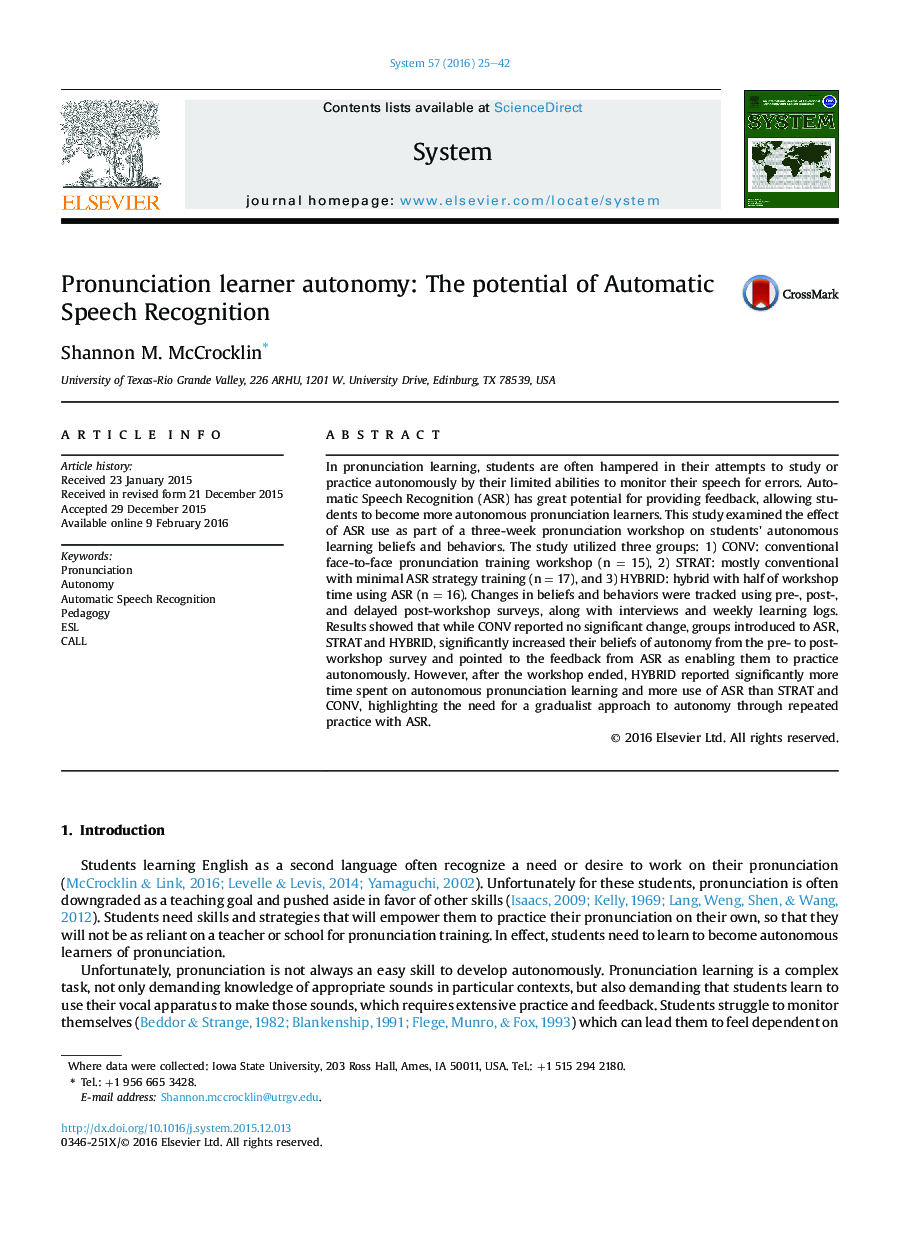| Article ID | Journal | Published Year | Pages | File Type |
|---|---|---|---|---|
| 372905 | System | 2016 | 18 Pages |
In pronunciation learning, students are often hampered in their attempts to study or practice autonomously by their limited abilities to monitor their speech for errors. Automatic Speech Recognition (ASR) has great potential for providing feedback, allowing students to become more autonomous pronunciation learners. This study examined the effect of ASR use as part of a three-week pronunciation workshop on students' autonomous learning beliefs and behaviors. The study utilized three groups: 1) CONV: conventional face-to-face pronunciation training workshop (n = 15), 2) STRAT: mostly conventional with minimal ASR strategy training (n = 17), and 3) HYBRID: hybrid with half of workshop time using ASR (n = 16). Changes in beliefs and behaviors were tracked using pre-, post-, and delayed post-workshop surveys, along with interviews and weekly learning logs. Results showed that while CONV reported no significant change, groups introduced to ASR, STRAT and HYBRID, significantly increased their beliefs of autonomy from the pre- to post-workshop survey and pointed to the feedback from ASR as enabling them to practice autonomously. However, after the workshop ended, HYBRID reported significantly more time spent on autonomous pronunciation learning and more use of ASR than STRAT and CONV, highlighting the need for a gradualist approach to autonomy through repeated practice with ASR.
